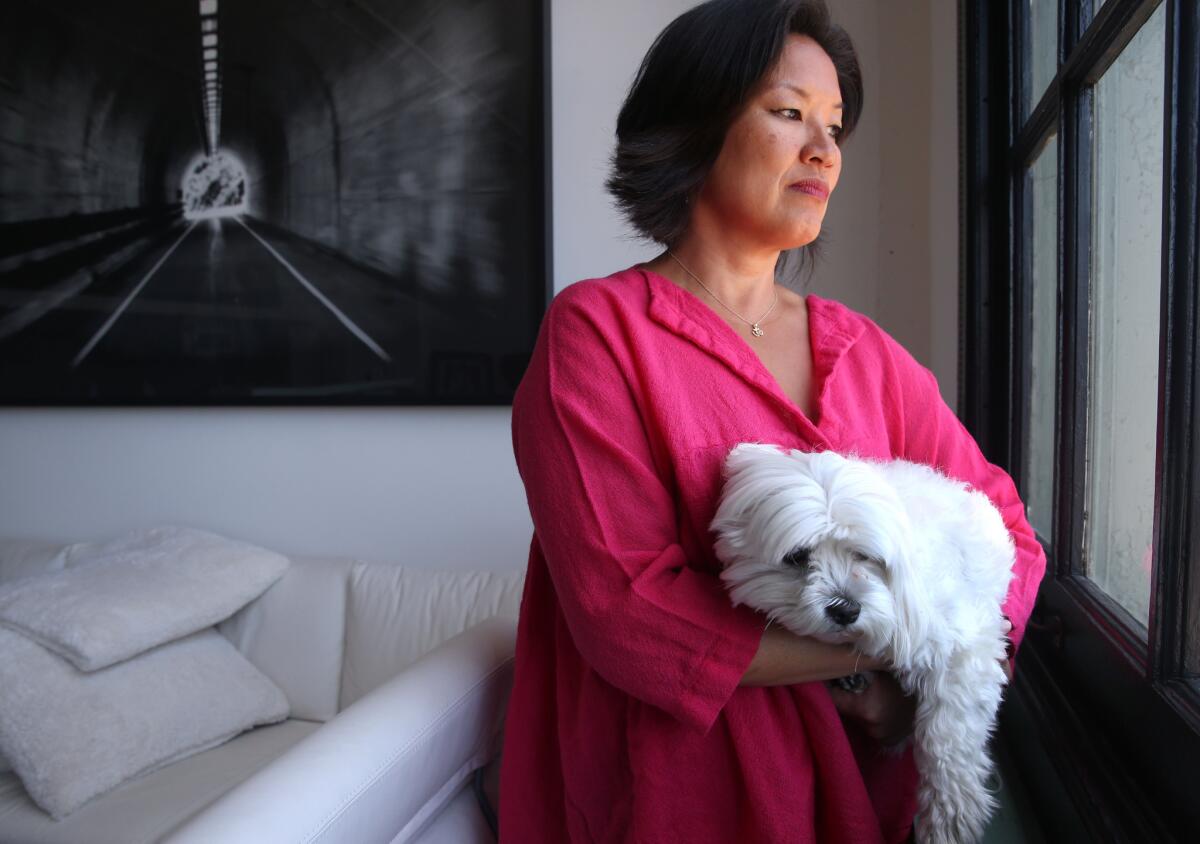S.F. judge has tough questions for both sides in frozen embryos case

Mimi Lee holds her dog Toshi at her loft in San Francisco last month. Lee and her ex-husband are locked in a court dispute over their frozen embryos.
- Share via
Reporting from San Francisco — A judge who will decide the fate of a divorced couple’s five frozen embryos objected Tuesday when a lawyer described the matter as a dispute over property.
“It’s a hard issue,” San Francisco Superior Court Judge Anne-Christine Massullo said during closing arguments. “Describing it as property doesn’t really capture what this is.”
The embryos, she added, “could result in the birth of a child.”
Stephen Findley, 45, and his former wife, Dr. Mimi Lee, 46, an anesthesiologist, divorced in April. She wants to use the embryos they created to have a child. He wants them destroyed. They both signed a consent agreement in 2010 directing a fertility clinic to discard the embryos in the event of a divorce.
Both sides received skeptical questions from the judge as she listened to closing arguments after a one-week trial. The case is expected to be submitted late this month after final briefs are filed. The judge will then have 90 days to issue a ruling.
Lee wept as the arguments came to an end and Massullo expressed concern about forcing Findley to become a parent.
The judge noted that if the embryos were turned over to Lee, she would have the “unfettered right” to use them as she pleased.
Massullo asked whether she should consider the “uncertainty” Findley would face, given the possibility that Lee could call him in a few years and inform him she was having his second child.
“He’s effectively out of the picture until the child is born,” Massullo said.
Peter Skinner, Lee’s lawyer, argued that she would be willing to enter into an agreement with Findley to protect his rights. But the judge said a court could not enforce an agreement limiting child support or the number of children who could be born.
“The landscape is so uncertain,” Massullo said.
Lawyers for Findley contend the consent agreement they signed at the fertility clinic was a binding legal contract that required destruction of the embryos if the couple divorced.
Lee’s lawyers countered that the form was a mere advance directive that either side could change.
Twitter: @mauradolan
More to Read
Sign up for Essential California
The most important California stories and recommendations in your inbox every morning.
You may occasionally receive promotional content from the Los Angeles Times.














